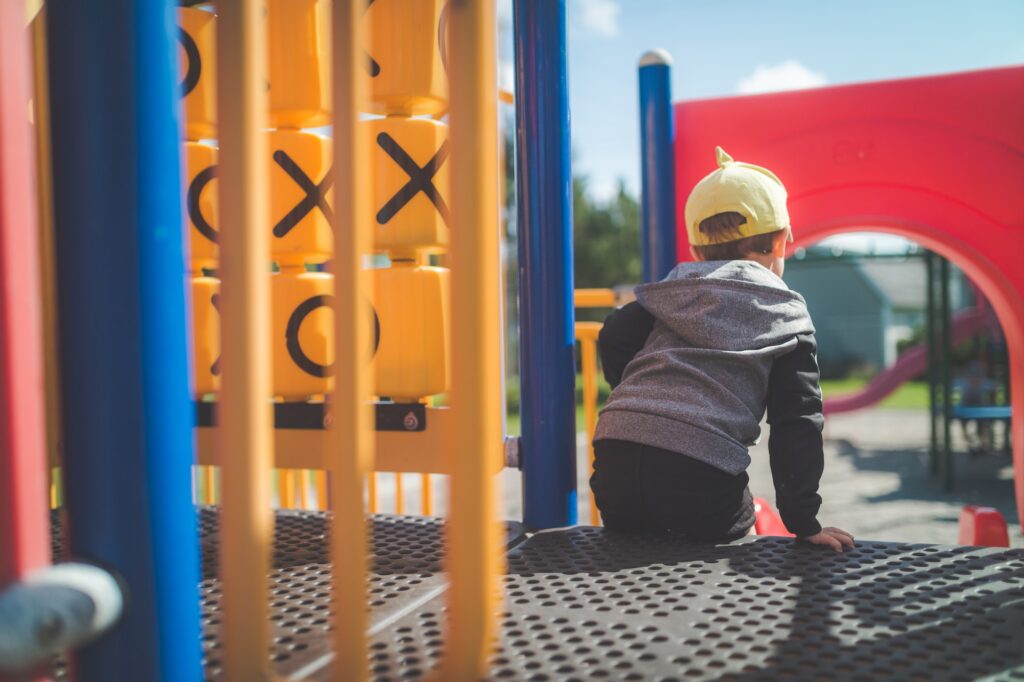
Playgrounds are more than just spaces for children to run, jump, and have fun. They serve as valuable learning environments where kids acquire essential life skills while enjoying themselves. The combination of physical activity, social interaction, and unstructured play fosters the development of various skills that can benefit children throughout their lives.
In this blog post, you’ll explore six crucial life skills that children learn on playgrounds.
1. Physical Fitness and Coordination
One of the most apparent advantages of playgrounds lies in their ability to enhance physical fitness and coordination among children. Activities such as swinging, climbing, and balancing on playgrounds play a pivotal role in nurturing children’s motor skills, strength, and balance, all of which are integral to their holistic development. Engaging in regular physical activity on the playground also contributes to the cultivation of a healthier lifestyle, mitigating the risk of obesity and related health concerns in their later years.
2. Social Interaction and Communication
Playgrounds are bustling with children from diverse backgrounds, providing an opportunity for kids to interact with their peers, which is important for their social development. Through games, shared activities, and conversations, children learn valuable social skills such as cooperation, conflict resolution, and effective communication that they will need later on in life. Many people do not think about these skills consciously, but they are still an important aspect of a child’s growth and should not be ignored.
3. Creativity and Imagination
Playgrounds provide an enriching setting for cultivating creativity and imagination in children. It’s a frequent occurrence to observe children transforming commercial playground equipment into castles, spaceships, or secret hideaways while they play. Engaging in such imaginative play fosters the development of creativity, problem-solving skills, and a knack for innovative thinking, which are important skills to learn. These competencies become invaluable assets when confronted with future challenges, especially inside school or even later on in life.
4. Risk Assessment and Decision-Making
As children have a blast on the playground, they are continuously engaged in the process of evaluating risks and making decisions. They become adept at gauging potential hazards associated with different activities and selecting their course of action based on their capabilities and comfort levels. This aptitude for risk assessment and decision-making nurtured during childhood becomes indispensable in adulthood, enabling individuals to make well-informed choices in both their personal and professional lives. It might not seem like a huge deal, but this can be an excellent way to get things started in the right direction.
5. Resilience and Perseverance
Playground adventures are not without their share of challenges though. Children often come across obstacles, experience falls, or encounter setbacks while at play that they couldn’t have foreseen. These experiences serve as valuable lessons in resilience and perseverance, which help to build character even at a young age. They discover the importance of getting back on their feet, making another attempt, and confronting obstacles with unwavering determination. This capacity for resilience becomes a fundamental life skill, aiding individuals in navigating the various highs and lows that life presents.
6. Conflict Resolution and Fair Play
Playgrounds frequently place children in situations where they must grapple with conflict resolution and the principles of fair play. Whether it involves determining who gets the first turn on the slide or mediating disputes during group games, children grasp the significance of compromise, empathy, and adherence to rules. These skills hold immeasurable value in fostering robust relationships and molding responsible members of society. Even if you don’t think about this, it doesn’t mean that playground life skills are not important or there.
Insights and Takeaways
Playgrounds serve as more than just a source of fun for children. They provide a dynamic learning environment where kids acquire essential life skills that will benefit them in the future. From physical fitness and coordination to social interaction, creativity, risk assessment, resilience, and conflict resolution, playgrounds offer a comprehensive platform for holistic development. So, the next time you see children playing on a playground, remember that they are not just having fun; they are building a foundation for a successful and well-rounded future.


